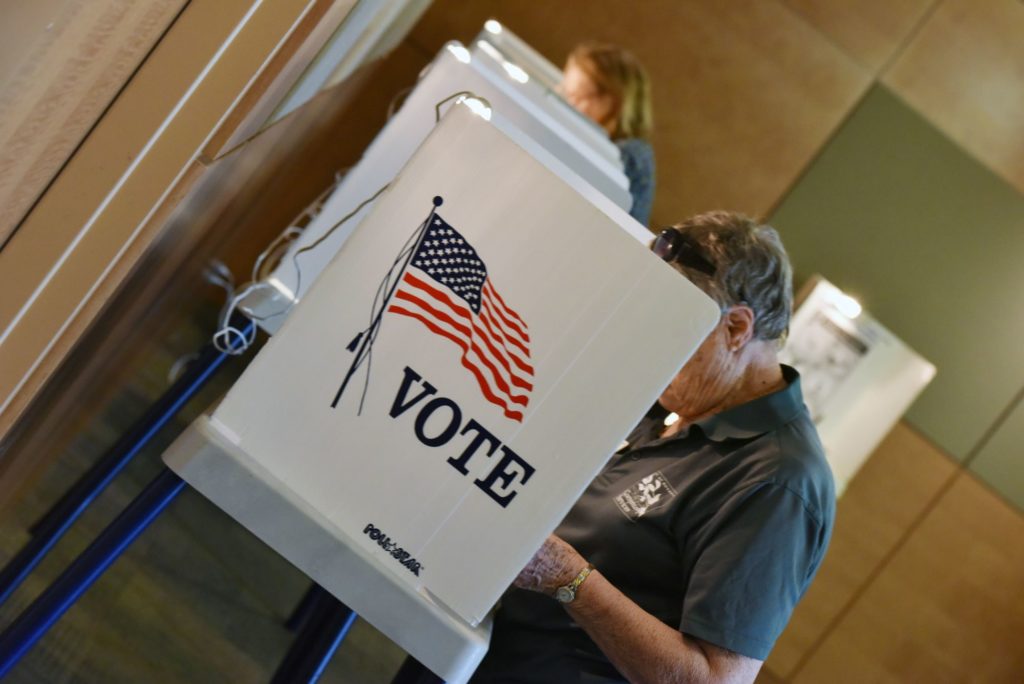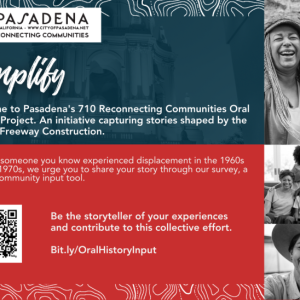 View Winners →
View Winners → Guide to California’s Propositions on the 2020 Ballot


With the election date getting closer, it is important that Californians know what they are being asked to vote on. – File photo by Terry Miller / Beacon Media News
By Destiny Torres
This year’s general election is right around the corner. As Nov. 3 grows nearer, voters must understand everything that will appear on their ballots.
There will be a total of 12 propositions for Californians to vote on this year. While it may be difficult to research all of them on one’s own, these are all the ballot initiatives voters will be asked to decide on this election.
California Proposition 14: Stem Cell Research Initiative Bond
With this proposition, voters will be deciding on whether or not to issue $5.5 billion in state bonds to the California Institute for Regenerative Medicine (CIRM).
CIRM was created in 2004 after voters approved Proposition 71, the California Stem Cell and Research Initiative, to fund stem cell research along with issuing $3 billion in bonds. Proposition 71 also created a 29-member governing board to oversee the program; Proposition 14 would increase the number of members to 35.
Approving this initiative would increase state costs possibly over the next 30 years.
California Proposition 15: Tax on Commercial and Industrial Properties for Education and Local Government Funding Initiative
The approval of this measure would mean amending the state’s constitution to require that commercial and industrial properties be taxed according to market value rather than on the purchase price. Exempted from these changes are residential properties, agricultural land and owners of commercial and industrial properties whose value is less than $3 million.
Those opposed argue that the measure would repeal taxpayer protections provided by Proposition 13, an initiative approved in 1978 that stabilized state property taxes by capping it at a 2% increase per year.
“But, as bad as that would be for the economy overall, split roll takes special aim at agriculture and would sweep across our farms and ranches like a wildfire,” wrote Ted Gaines, a former state senator and member of the California State Board of Equalization wrote for Bakersfield.com.
Proposition 15 only applies to commercial and industrial properties, or holdings worth over $3 million.
Those who approve argue that larger companies should not be taxed the same way that homeowners or smaller businesses do.
“We’re asking for companies like Disneyland or Universal Studios that make huge amounts of money to pay property taxes based on fair market value—the same thing that homeowners and, frankly, most businesses have to do,” Josh Pechthalt, president of the California Federation of Teachers, told Rewire News Group.
The money from these new taxes would be dispersed in a very specific way rather than going to one general fund. The ballot initiative states that revenue from the new taxations would go to public schools, community colleges and local governments.
California Proposition 16: Repeal Proposition 209 Affirmative Action Amendment
Proposition 209, or the Affirmative Action Initiative, is a measure approved in 1996 which amended the state constitution to prohibit public state institutions from considering race, sex, or ethnicity in areas of public employment, public education and public contracting, therefore banning the use of affirmative action.
Affirmative action is the practice of favoring individuals in certain groups that are known to have been historically discriminated against. It was used to ensure that minority groups had more access to public employment and schooling.
Proposition 16 would defeat Proposition 209. If approved, state and local governments, public schools and other public services would be allowed to use affirmative action policies that would grant access to people based on their race, sex and ethnicity.
California Proposition 17: Voting Rights Restoration for Persons on parole Amendment
Currently, the state’s constitution disqualifies people with felonies from voting until both their prison sentence and parole are completed.
Proposition 17 would amend that law by allowing people with felonies who have completed their prison sentence to vote while on parole.
California Proposition 18: Primary Voting for 17-Year-Olds Amendment
A “yes” vote for this initiative would make it possible for 17-year-olds to vote in primary elections if they will be turning 18 by the time of the general election.
California Proposition 19: Property Tax Transfers, Exemptions, and Revenue for Wildfire Agencies and Counties Amendment
This ballot initiative targets the taxes of homeowners who are 55 or older, people with disabilities, or people who lost their homes to a natural disaster.
A “yes” vote on Proposition 19 would amend the state’s constitution to allow these homeowners to transfer their lower property taxes to their newer home if they choose to buy somewhere else in the state regardless of its market value, giving them a major tax break.
It also means that if someone were to inherit their home from a family member and later try to rent it out to Airbnb instead of using it as their primary home, they would receive a tax increase based on the home’s present market value.
Additional money made from this value would go to firefighters and public schools.
A “no” vote means the law remains the same and property tax transfers can only occur if the market value is the same or higher of their previous home.
California Proposition 20: Criminal Sentencing, Parole, and DNA Collection Initiative
Proposition 20 would change many laws passed to reduce the state’s prison population.
Crimes like theft and fraud are currently charged as misdemeanors, Proposition 20 would change that so they are charged as felonies.
It would also make parole review boards look at other factors when determining whether or not non-violent felons should receive parole. These new elements would include age, skills and mental condition.
Along with these changes, the proposition would also require that convicted felons submit their DNA to the state and federal government databases.
A vote “yes” would increase the jail population leading to an estimated major increase in the state’s costs.
California Proposition 21: Local Rent Control Initiative
This proposition would allow local governments to establish rent control on properties that are over 15 years old.
California Proposition 22: App-Based Drivers as Contractors and Labor Policies Initiative
If Proposition 22 were to be approved, drivers who work for apps like Uber, DoorDash and Lyft would be labeled as independent contractors. These app companies would then implement their own labor and wage policies, and not have to adhere to state labor laws such as providing minimum wage, unemployment insurance and workers’ compensation.
If the proposition is rejected, the government would be able to decide whether drivers are independent contractors or employees.
California Proposition 23: Dialysis Clinic Requirements Initiative
This proposition would require at least one licensed physician to be present at the clinic at all times unless there is a significant staff shortage. Without state approval, clinics would not be allowed to close or reduce services. Proposition 23 also prohibits clinicians to refuse care to patients based on their form of payment.
It would also require clinics to report newfound data to the state and the federal government.
California Proposition 24: Consumer Personal Information Law and Agency Initiative
With the digital age in full swing, many consumers have become worried about what businesses do with their private information like using it for marketing or advertising.
Proposition 24 would further protect consumers’ information by ensuring that businesses do not share private information upon the request of a consumer and giving people the ability to opt-out.
It also adds more protection for younger users like businesses would need to get permission before collecting information from people under 16 or gain permission from parents before collecting data from children under 13.
If a business were to violate any rules, this proposition also changes the possibility of businesses fixing their mistake before paying the price for it.
California Proposition 25: Replace Cash Bail with Risk Assessments Referendum
In California, a person who is arrested has the option of paying their bail or taking out a bail loan. Because of this, wealthier people can get out of jail right away without borrowing money or taking a plea deal.
This proposition would replace the cash bail system with an algorithm that would determine a criminal’s flight risk before their trial.








































































































